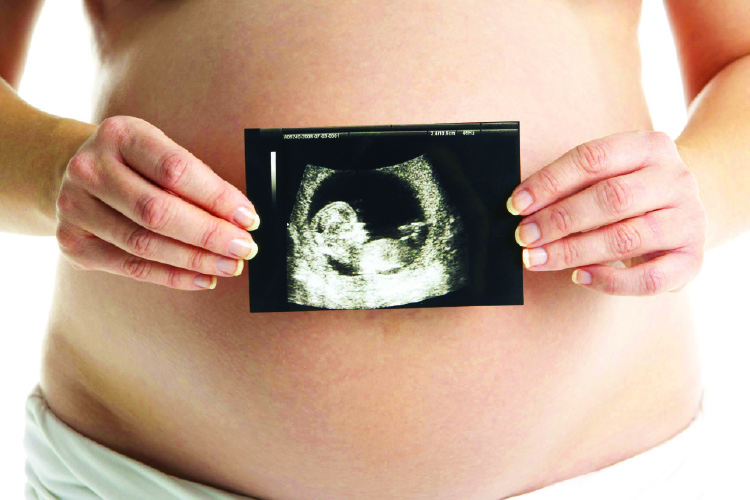Want to increase your chances of getting pregnant but not ready for fertility treatments? Here are some things you can do on your own.
Getting pregnant seems to be so easy for some couples. Yet for others, it can be a difficult process. Many factors affect fertility, and it’s no longer just the fault of the woman if she can’t conceive. Experts say it can be caused by physical issues such as blocked fallopian tubes in the woman or low to no sperm count in the man – these problems can be identified by a fertility specialist and treatments like in vitro fertilization (IVF) or insemination are usually recommended. However if physical issues are not the cause, and you are still trying hard for a baby, you can still try lifestyle remedies to increase your chances.
Table of Contents
01. A Healthy Diet
It’s still debatable whether a specific type of food can boost fertility. However, a healthy diet is always a priority in maintaining a proper lifestyle so getting pregnant comes smoothly. Interestingly, in a study by Harvard School of Public Health conducted on some 17,000 women, researchers were able to define a group of “fertility foods” which are able to improve conception odds. According to the study, there are dietary tenets that are significant for increasing fertility.
These include:
- Cutting down on trans fats (like the kind found in many baked goods or fast foods) and eating more monounsaturated fats (like olive oil)
- Reducing animal protein (red meat) and switching to more vegetable protein (like soy)
- Going for more high fibre, low-glycemic foods; for example whole grains, vegetables, and some fruits
- Decreasing the intake of refined carbohydrates and sugars
- Eating only moderate amounts of high-fat dairy products – like ice cream, whole milk, and cheese.
- In his book The Fertility Diet, Jorge Chavarro, MD, a study researcher, shares that diets do make a difference when it comes to fertility. “This is because the majority of women experiencing ovulatory dysfunction usually suffer from undiagnosed or subclinical PCOS (polycystic ovary syndrome), a condition related to insulin resistance that also affects ovulation,” he says. “This condition responds well to diet, so that could be one of the reasons these foods were so helpful.”
Nevertheless while diet may contribute to fertility, experts advise to not depend on it alone – diet should be just one part of a couple’s overall efforts to conceive.
02. Control Your Weight
Researchers discover that when a woman has either very low or very high BMI (body mass index), it disrupts ovulation which subsequently affects the production of important reproductive hormones. So never mind if you follow the fertility foods path or not, because watching your weight is essential to boost fertility as well.
A recent Dutch study conducted on 3000 women observes that even when a woman is ovulating normally, excess weight tends to interfere with their fertility. This adds to the findings that for many women, especially those who are overweight, their fertility issues all lead back to ovulatory dysfunction, often caused by PCOS.
All this means that before you even consider complicated and pricey fertility treatments, it’s best that you lose that excess weight first. In fact there are new guidelines from the British Fertility Society which defer fertility treatments in very obese women (BMI over 35) until they gave weight loss a try. On the other end of the scale, however, being too lean can also affect fertility as women who are underweight are not able to sustain a regular menstrual cycle. Here’s where doctors advise to increase their weight to a healthy level so their reproduction systems function normally again.
Reporting in the journal Human Reproduction, researchers documented a 4% decrease in conception odds for every point in BMI above 30. For women whose BMI was higher than 35, there was up to a 43% overall decrease in the ability to conceive.
03. The Right Time
Timing is a factor when it comes to conception. So doing it at the ‘right time’ may increase your chances of getting pregnant. Doctors suggest that couple engage in coitus beginning three to four days prior to ovulation, and continuing up to 24 hours after ovulation. In this case, you would need to know when you are ovulating. There are many ways to know when you are ovulating:
- Taking your basal body temperature (BBT): Keep track of your daily temperature for 2 to 3 months to find a common trend or pattern. Have intercourse when your body temperature drops as this is your fertile window – prior to egg release, your BBT drops about a half degree and then rises again after you ovulate.
- Check your cervical mucus: Your cervical mucus will be more copious, thinner, and clearer than on other day right before ovulation. Your most fertile time is when your mucus looks like thick rubber cement and you are able to pull it apart.
- Ovulation predictor kit (OPK): These kits come with a colour-sensitive dipstick or digital features and can alert you up to two days in advance.
- Fertility monitor: A fertility monitor can indicate as many as six or seven fertile days each cycle. Some come in the form of a wristwatch fertility predictor, which detects chemical changes on the skin that indicate ovulation. These fertility watches help women identify the four days prior to ovulation.
SPECIAL TIP:
The American Society for Reproductive Medicine says if you don’t get pregnant after 12 months of regular unprotected intercourse – or six months if you are a woman over 35 – it’s time to seek help from a fertility specialist.
















